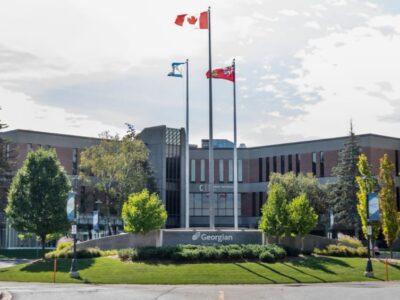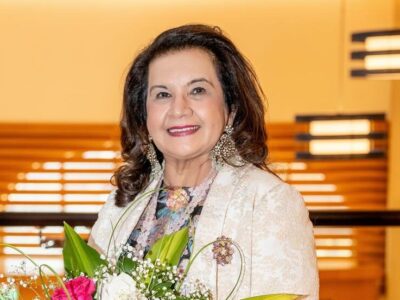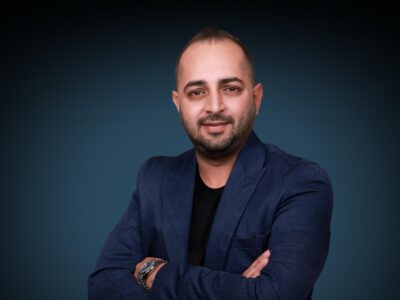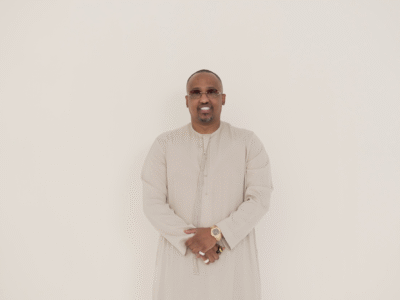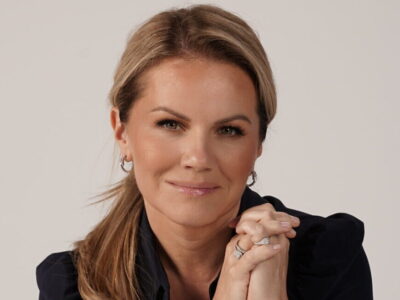
Policy, education, and strategy are often treated as separate domains, each governed by its own rules, priorities, and pace. But when these sectors intersect with leadership shaped by ethical conviction and long-term thinking, they become powerful tools for societal transformation. At the center of this convergence lies the push to redefine how institutions think about value, not just in terms of profit or performance, but in how they cultivate human capital, public trust, and future readiness.
Across the Middle East, this integrated approach is becoming increasingly relevant. As governments invest in economic diversification and innovation, the need for leaders who can move between boardrooms, classrooms, and advisory councils with equal fluency is more urgent than ever. These roles call not only for technical expertise, but for a deep understanding of cultural context, institutional change, and the discipline required to lead responsibly over time.
One of the voices shaping this conversation is Dr. Salwa Abdullatif Al Hammadi, a strategist whose work bridges educational leadership, public policy, and economic development. With a background that includes a PhD in Educational Leadership, an MBA, and years of experience advising institutions across sectors, she brings a rare combination of academic insight and practical influence.
Her focus is not simply on reforming systems but on embedding values, integrity, discipline, and accountability, into the very structure of decision-making. Whether speaking on leadership ethics, contributing to policy discussions, or mentoring the next generation of women leaders, Dr. Salwa approaches each role with a commitment to long-term impact. In a region balancing rapid change with cultural continuity, her work offers a grounded, values-driven model for leadership in complex environments.
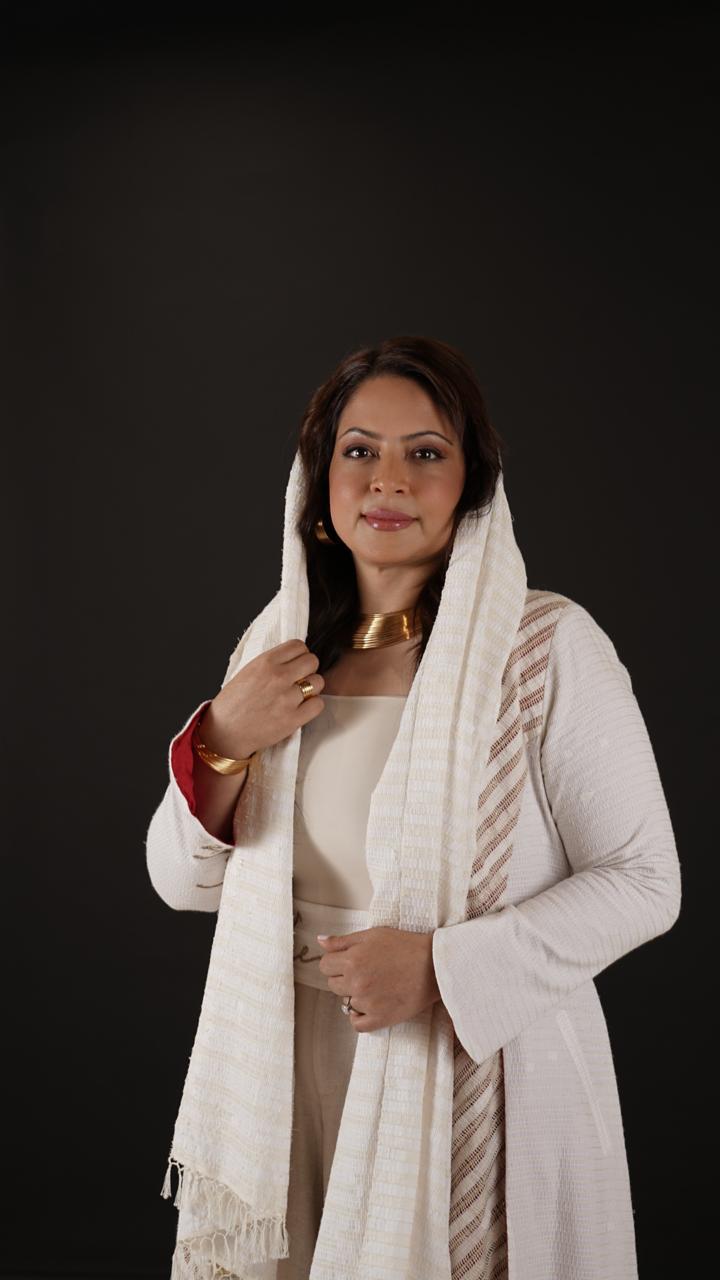
In this interview, Dr. Salwa shares the thinking behind her multidisciplinary approach, the values that guide her leadership, and the challenges she has navigated as a woman working across traditionally male-dominated sectors. She reflects on her journey, the systems she hopes to influence, and the kind of leadership she believes the region needs now—and in the years ahead.
Leadership as the First Condition for Progress
For Dr. Salwa, leadership is not a role, it is a throughline that connects disciplines, sectors, and outcomes. From her early years in banking to her work in economic studies, public policy, and education, leadership has remained, in her words, “the anchor across every chapter” of her professional journey.
She sees leadership not as a soft skill, but as the decisive factor that determines whether systems deliver on their potential. “I’ve seen technically sound strategies fall short in the absence of clarity, connection, and leadership presence,” she explains.
Conversely, she’s witnessed transformation succeed where leadership was able to “align people, purpose, and process.”
Her perspective is rooted in real-world application across multiple sectors. In finance, it was about trust and risk. In education, it became about shaping how people think and grow. In policy, it meant translating national priorities into measurable outcomes. The common thread? “Systems don’t move until people do—and people follow what leadership models.”
For Dr. Salwa, effective leadership is not about control or visibility, but about intention, ethics, and presence. When done right, she says, “leadership sets the tone before strategy begins.” It becomes the lens through which values are operationalized and vision becomes reality.
Bridging Education and Strategy
While many leaders follow a linear path through a single industry, Dr. Salwa’s trajectory blends academia with applied leadership in both corporate and public arenas. Her academic background—an MBA and a PhD in Educational Leadership—forms the intellectual foundation of her work, but it is in practice where her leadership philosophy has fully come to life.
“The MBA introduced me to strategic frameworks, performance models, and financial structure,” she says. “The PhD gave me deeper insight into systems, governance, institutional behavior, and human development.” Together, these disciplines shaped a leadership model that is both structured and deeply human.
What distinguishes her approach is the belief that educational leadership belongs well beyond the classroom.
“Its core principles are urgently needed in organizations and government institutions that aim to grow, adapt, and lead with integrity,” she explains.
Rather than focus solely on outcomes, her leadership emphasizes people, culture, and ethical alignment, qualities often missing in performance-driven environments.
This mindset has influenced her work in economic strategy, public policy, and institutional development. “I’ve seen teams become more accountable, more invested, and more resilient when leadership focused on growth and understanding not just performance metrics,” she notes.
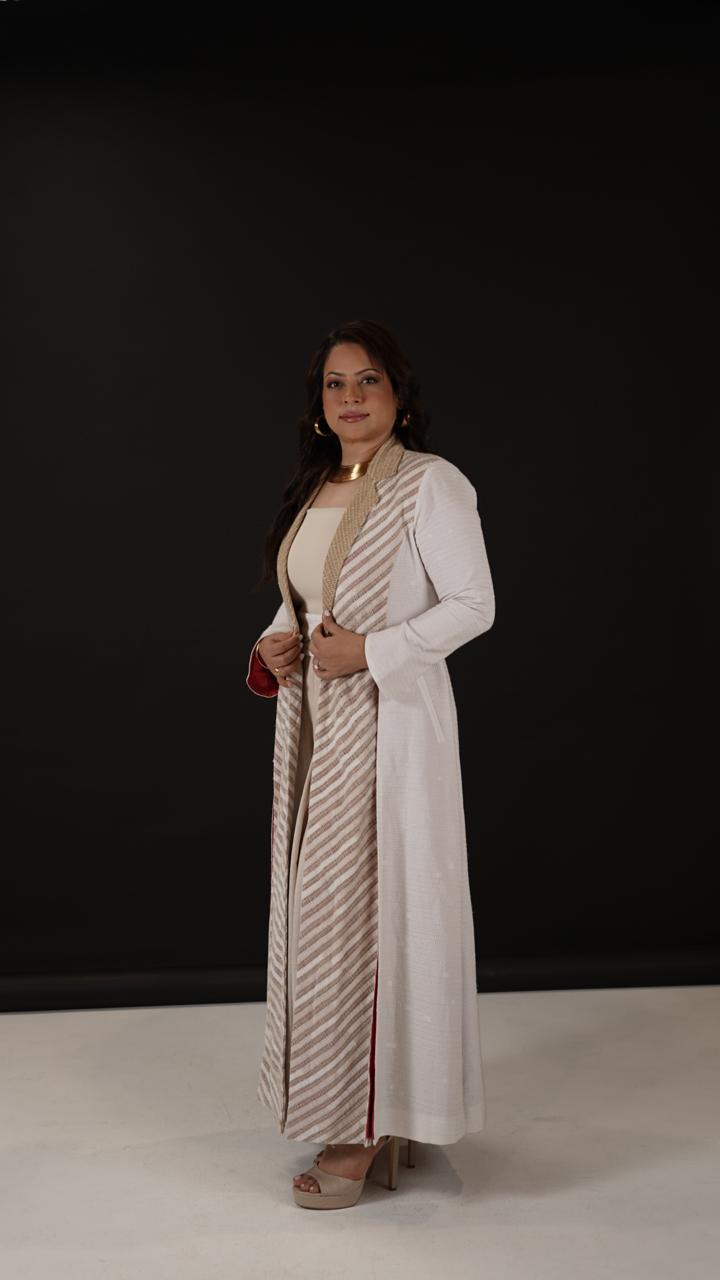
Her core message is clear: institutions don’t just need executives—they need educators. Leaders, she argues, should be able to mentor, teach, and model continuous learning. “That’s the leadership philosophy I’ve committed to in every sector I’ve served.”
Strategy Begins with People
For Dr. Salwa, strategy isn’t just about objectives and execution plans, it’s about people. Her approach starts not with frameworks or KPIs, but with emotional intelligence and human alignment. “They are not an afterthought or an implementation tool—they are the foundation,” she says of the people behind any strategic effort.
With a background that spans banking, public policy, and economic research, Dr. Salwa has seen how even the most technically sound strategies can falter when they ignore the human dimension. Emotional intelligence, she explains, allows leaders to “anticipate resistance, build cohesion, and respond to concerns with empathy and precision.” It’s this balance—between systemic logic and emotional understanding—that strengthens both trust and performance.
Her leadership process begins by asking fundamental questions: Are we designing this process with people in mind, or are we expecting them to adjust around it? Will this direction create engagement, or will it trigger resistance? These considerations don’t slow down results—they ensure that the results are lasting and sustainable.
“When leadership centers people,” she says, “trust increases, ownership deepens, and execution becomes far more resilient.” For her, a human-centric approach is not just a leadership preference, it’s a strategic imperative.
Academic Depth, Practical Reach
Dr. Salwa’s leadership philosophy is deeply rooted in a rich and purposeful academic journey, one that spans business, education, and systems thinking. Each degree, she explains, contributed a different lens through which she now views leadership development and institutional transformation.
Her MBA laid the groundwork: “It gave me the tools to build systems, assess performance, and understand how markets and institutions function at a structural level.” This business foundation sharpened her ability to operate in data-driven, outcome-oriented environments.
But it was her transition into higher education leadership that added new dimensions. Through her master’s and PhD, Dr. Salwa explored the mechanics of institutional culture, governance, and the power of values.
“Transformation becomes possible when people feel seen, heard, and empowered inside the systems they serve,” she reflects.
The result is a rare leadership model, strategic, yet deeply human. “I’ve become strategic enough to design and drive change, and grounded enough to lead that change with clarity, care, and purpose,” she says.
This 360-degree perspective allows her to work across sectors, from economic policy to public governance, building leadership capacity that is informed, ethical, and long-lasting.
For Dr. Salwa, developing leaders means more than teaching management, it means strengthening awareness, creating alignment, and preparing people to lead with both insight and responsibility.
From Command to Connection: Rethinking Institutional Leadership
Dr. Salwa challenges a common but outdated assumption: that leadership is primarily about control and hierarchy. In her view, leadership should be understood as a developmental process, one that teaches, uplifts, and builds trust.
“Real transformation begins when leadership becomes a process of development, not direction,” she says.
She emphasizes that this shift requires both structural and cultural change. Structurally, she advocates for systems that recognize the value of mentorship and emotional intelligence. Leadership assessments and promotion criteria, she argues, should reward those who invest in others, not only those who achieve performance targets. “Leadership is not an exercise in control, it is a responsibility to cultivate growth, learning, and trust.”
But change must also occur at the cultural level. Dr. Salwa works with institutions to move away from leadership cultures based on fear, excessive formality, or silence. Instead, she introduces what she calls “reflective learning” a practice that fosters dialogue, encourages questions, and makes space for vulnerability. “This is where emotional literacy becomes critical, not as a soft concept, but as a leadership strength.”
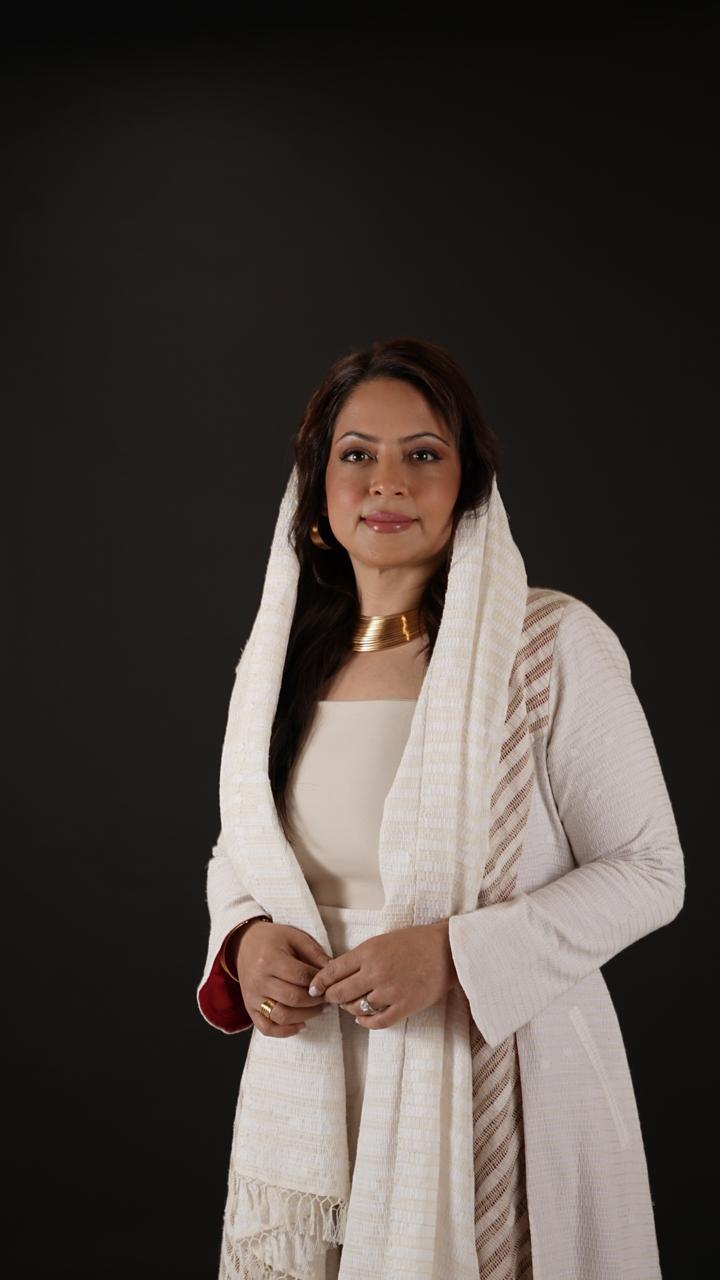
She brings the discipline of educational leadership into every space she enters, corporate, governmental, or academic. Leaders, she believes, should shift from issuing directives to asking meaningful questions; from managing performance to nurturing people. “When leaders begin to teach, they also begin to listen,” she says. “And when they listen, they lead from connection—not distance.”
Embedding Values Into the Fabric of Leadership
For Dr. Salwa, values like empathy and responsibility are not abstract ideals, they are operational principles that must be reflected consistently in how institutions think, decide, and lead. “Leadership values must be present in actions, decisions, and the culture we shape daily,” she says.
Empathy, in her view, begins with how leaders listen. It informs the questions they ask and how they include diverse voices in meaningful discussions. This approach ensures that policy and strategy are grounded in lived realities, not just theoretical models. “Empathy is reflected in how I listen, ask thoughtful questions, and ensure that different voices are part of every important conversation,” she explains.
Responsibility, she adds, is about more than accountability after the fact, it’s about presence and consistency in the face of complexity. “I apply the same standard to myself that I expect from others,” she says. For Dr. Salwa, responsibility means standing by decisions with integrity, even when they are difficult.
What sets her approach apart is the way these values are built into systems—not just spoken of in mission statements. “They are embedded into review frameworks, internal communications, and strategic direction,” she explains. Whether through how performance is evaluated or how teams engage with each other, these values become structural, not symbolic.
In moments of pressure or uncertainty, Dr. Salwai says values are what sustain leadership. “They protect the consistency of leadership and strengthen trust across all levels of the organization.” For her, this is what turns values into culture, and culture into long-term resilience.
Leading Change by Putting People First
Dr. Salwa’s approach to leadership is rooted deeply in a human-centric philosophy: “Leadership through a human-centric lens begins with seeing people before systems.” She has witnessed firsthand how trust, more than authority, opens minds and creates the conditions for real engagement and ownership. “When people feel heard, valued, and safe, they show up differently. They contribute ideas. They take ownership. They lead from where they stand, even without a formal title.”
This mindset has enabled her to foster cultural shifts in traditionally rigid and hierarchical institutions, not by confrontation, but through inclusion and presence. “Real cultural transformation doesn’t begin with directives—it begins with presence, listening, and alignment,” she explains. According to Dr. Salwa, culture changes when leaders consistently model integrity, emotional presence, and genuine care for the people behind the processes.
A certified John Maxwell Leadership trainer, she emphasizes that “self-leadership is where all sustainable change begins.” Demonstrating ownership and growth personally is a prerequisite for inspiring it in others. She applies Maxwell’s principle of “leading yourself before leading others” across every aspect of her work—from policy design to team building and organizational transformation.
“Culture can’t be pushed to change,” she reflects. “But you can lead it there—by walking with people, not ahead of them.” It is this patient, connected leadership that she credits with creating lasting alignment and meaningful progress.
Empowering Youth for Early Career Leadership
Recognizing the critical transition from education to the workforce, Dr. Salwa focuses on preparing young leaders not just professionally, but holistically. She describes this stage as “one of the most defining moments in a young leader’s life” and supports youth by building “professional readiness, internal strength, emotional resilience, and a leadership mindset anchored in values.”
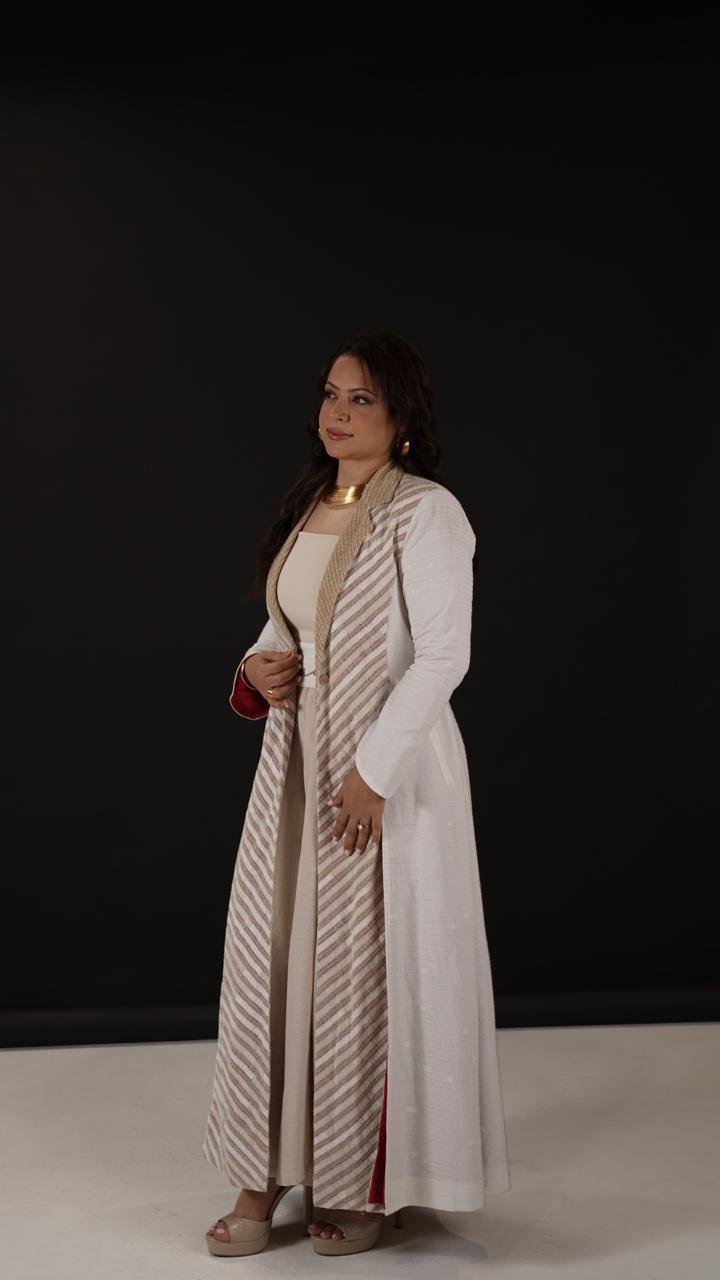
Central to her approach is iLeadership, a framework she developed to cultivate the next generation of “People Leaders” through five core principles: Vision, Integrity, Tenacity, Altruism, and Leadership by Example. Leveraging her certification as a John Maxwell Leadership trainer, she equips youth with tools that foster influence-based leadership—helping them lead “with character, clarity, and emotional intelligence from the very beginning of their careers.”
Dr. Salwa goes beyond traditional career advice by teaching young professionals to engage with organizational systems actively. She guides them to “understand organizational dynamics, think critically, challenge assumptions with respect, and offer solutions that are thoughtful, innovative, and ethically grounded.” For her, youth should not be passive employees but contributors who bring value through “awareness, initiative, and responsible leadership.”
She also advocates for a shift in institutional mindsets, arguing that leadership should not be reserved for seniority or age. “Youth don’t need to wait to be included—they need to be entrusted, supported, and heard.” When young people are embraced early in leadership roles, she says, leadership “becomes part of identity, not just a future aspiration,” setting the stage for meaningful transformation.
Emotional Intelligence as a Key to Lasting Transformation
For Dr. Salwa, emotional intelligence is far from a “soft skill”, it is a strategic tool essential to leading meaningful and lasting change. She explains that while “the technical design of reform may open the door, it’s emotional intelligence that determines whether people are willing to walk through it.”
Policies and strategies shape the structure of change, but emotional intelligence addresses the people who either carry change forward or stop it. She uses emotional intelligence to “sense hesitation before it becomes resistance, to read what’s unspoken in a room, and to lead through presence rather than pressure.” This means knowing when to pause, listen deeply, and provide clarity without overwhelming others.
Recognizing that change often brings “fear, doubt, and discomfort,” she meets these emotions “with steadiness and empathy,” inviting people into the process by validating their concerns and including them in shaping the way forward.
As she puts it, “When people feel acknowledged and genuinely included, they engage. When they feel pressured or overlooked, they disengage.” Sustainable reform, she emphasizes, happens not through enforcement but through “thoughtful connection, respectful timing, and mutual trust.”
Ultimately, Dr. Salwa believes that “the more emotionally aware and human-centered the leadership is, the more resilient and enduring the transformation becomes.” True change, in her view, is “not about pushing people toward a new direction—it’s about walking with them through it.”
Leadership Legacy: A Vision of Humanity, Clarity, and Example
Dr. Salwa envisions leaving behind a leadership legacy deeply rooted in humanity and clarity of purpose. She aspires to cultivate “a leadership culture that is clear in vision and grounded in humanity,” one that “sees strength in kindness, depth in listening, and dignity in how we lead others.”
For youth, her hope is empowering: “I want youth to feel they don’t need permission to lead, just clarity in purpose and strength in values.” For institutions, she wishes to imprint a strategic truth, that “human-centered systems are not idealistic, they are strategic.”
Central to her legacy is the belief that “leadership begins from within.” She emphasizes that real transformation starts when leaders “reflect deeply on their own values and align their behavior with the change they seek.” She challenges CEOs and senior executives to ask themselves: “Are we modeling what we expect from others? Are we building the culture we speak about?”
Her core conviction is clear: “You cannot lead others without first leading yourself. The greatest influence comes from example—not instruction.” Legacy, she says, is “not about recognition. It’s about continuation.”
If her leadership has helped others lead “more humanely, more ethically, and more courageously,” then that is the enduring culture she hopes to leave behind—a leadership culture that “serves, uplifts, and sustains.”

